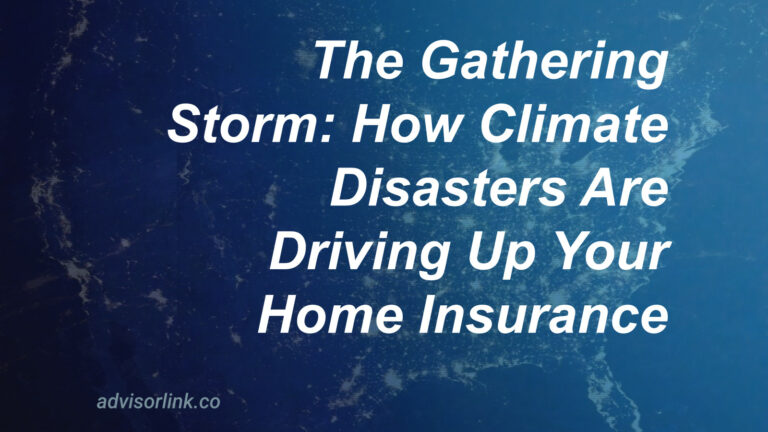NFIB Pushes for Insurance Reform to Lower Costs for Small Businesses
NFIB Pushes for Insurance Reform to Lower Costs for Small Businesses
How Proposed Legislation Could Impact Business Owners and Homeowners
Is the American small business dream being crushed by the weight of runaway insurance costs? The facts suggest it might be. Across this nation, from family-owned diners in rural Texas to boutique shops in Manhattan, small business owners are facing an unprecedented burden that threatens their very survival—skyrocketing insurance premiums that eat away at already slim profit margins.
The numbers tell a sobering story. Insurance costs for small businesses have climbed steadily over recent years, creating what many independent business owners describe as an unsustainable financial strain. These aren’t just statistics on a page; they represent real people facing hard choices between maintaining adequate coverage and keeping their doors open.
What exactly is the NFIB fighting for?
Is insurance reform simply about cutting costs? No, it runs deeper than that. The National Federation of Independent Business (NFIB) has positioned itself at the forefront of this battle, urging the House to pass a series of insurance reform bills aimed at addressing what they see as a two-pronged problem: exorbitant costs and an unbalanced legal system that favors insurers over the insured.
“These bills represent a critical opportunity to level the playing field,” says a representative from the NFIB. The organization, which represents thousands of small businesses nationwide, has made insurance reform a cornerstone of its advocacy agenda for 2025.
How would lower insurance costs transform Main Street?
Is there a broader economic benefit to insurance reform? The evidence suggests yes. When small business owners spend less on insurance premiums, those savings don’t simply vanish into thin air like morning fog over the Mississippi. They translate into tangible benefits: new hires, expanded services, facility improvements, or simply the ability to weather economic storms without laying off valued employees.
Consider the Mom-and-Pop hardware store competing against big-box retailers, or the local restaurant fighting to stay afloat amid rising food costs. For these establishments, insurance relief could mean the difference between growth and closure.
Homeowners stand to benefit as well. Many of the same reforms that would help small businesses would also address the rising cost of homeowners insurance. In states where natural disasters have led to insurance market contractions, reform measures could help stabilize premiums and expand coverage options for property owners.
What obstacles stand in the way of reform?
Is the path to insurance reform straightforward? History tells us it’s anything but. The proposed legislation faces potential roadblocks from powerful insurance industry lobbying efforts, concerns about unintended consequences, and the ever-present challenge of partisan politics.
The bills must navigate complex committee structures before reaching a full House vote. Even then, they would need to clear the Senate and receive executive approval—a journey comparable to a salmon swimming upstream during spawning season.
Critics of the reform measures argue that reducing legal liability for insurers could potentially harm consumers who have legitimate claims. Proponents counter that the current system encourages frivolous lawsuits that ultimately drive up costs for everyone.
What happens next in this legislative drama?
Is there reason for optimism? Despite the challenges, there appears to be growing bipartisan recognition that the status quo is unsustainable. Several key committee chairs have signaled support for bringing the bills to a vote before the summer recess.
The NFIB continues to rally its members, encouraging them to contact their representatives and share personal stories about how insurance costs impact their businesses. These narratives—real people with real struggles—often prove more persuasive than abstract policy arguments.
As this issue unfolds in Washington, one thing remains clear: for America’s small businesses and homeowners, insurance reform isn’t just another political debate—it’s a matter of economic survival. And in a nation that has long celebrated entrepreneurship as a pathway to prosperity, ensuring that insurance costs don’t become an insurmountable barrier seems not just sensible, but essential to preserving that fundamental American promise.
The legislative clock is ticking. For millions of small business owners and homeowners across this country, the hope is that meaningful reform will arrive before that clock runs out.
Disclaimer: General Information & Accuracy
This blog provides general information and discussions about insurance and related subjects for informational purposes only. It is not intended as professional advice, including but not limited to financial, legal, or medical advice. We strive for accuracy, but laws, regulations, information, and best practices constantly evolve, and unintentional errors can occur. Therefore, we make no warranties about the completeness, accuracy, reliability, or suitability of the blog content. Always consult with a qualified professional for advice tailored to your specific situation. Any reliance you place on this information is strictly at your own risk.





